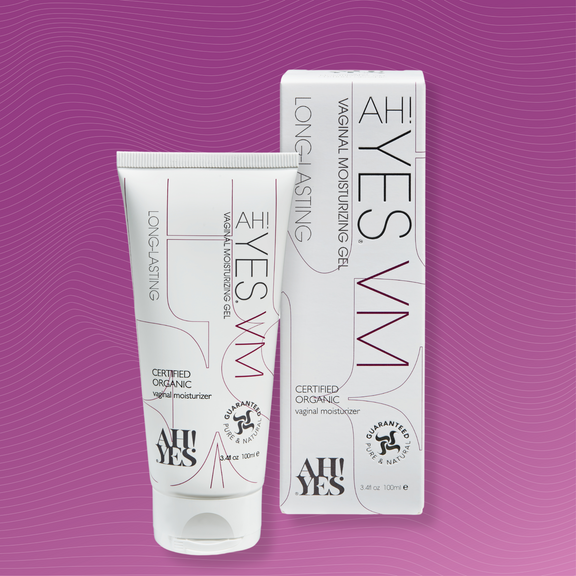Vaginal Dryness after Gynecological Cancer?
Gynecological cancer, a term referring to a range of cancers affecting the female reproductive system, can be a challenging diagnosis. With over 1.3 million cases annually, it accounts for nearly 40% of all cancer diagnoses [1]. Navigating the journey from diagnosis to recovery can be a tough road, and a significant but often overlooked concern is vaginal dryness. Here, we'll delve into the connection between cancer treatments and vaginal dryness, while also exploring potential remedies.
Different Forms of Gynecological Cancer
Gynecological cancer encompasses various cancer types originating in the female reproductive organs. These include ovarian, cervical, uterine (endometrial), vaginal, and vulvar cancers, each accompanied by unique symptoms and risk factors.
Treatment Choices for Gynecological Cancer
Several treatment options are available for gynecological cancer, these include:
- Surgery, including hysterectomy
- Chemotherapy
- Radiation Therapy
- Hormone Therapy (also known as endocrine therapy)
Gynecological Cancers and the Vaginal Microbiome
Much like the digestive system, the vagina maintains its own delicate micro-environment that plays a crucial role in preventing infections and promoting vaginal health. Research indicates that cancer treatments can disrupt this vaginal balance [2]. Studies show that two-thirds of women undergoing cancer treatment experience related symptoms like vaginitis, fibrosis, bleeding during sex or exams, dyspareunia, and sexual dysfunction. The vaginal microbiome of these patients often differs from that of healthy women, with fewer lactobacilli (beneficial vaginal bacteria) and elevated levels of harmful bacteria [2].
That’s why it’s so important to take steps to safeguard your intimate health during treatment and beyond.
Hormonal Imbalance: The Cause of Vaginal Dryness post-Cancer Treatment
Cancer treatments, such as chemotherapy and hormone therapies, can interfere with the body's natural estrogen production. Estrogen, a pivotal hormone responsible for maintaining vaginal tissue health and elasticity, regulates blood flow and lubrication within vaginal walls. Disruption of estrogen levels leads to reduced blood flow to the vaginal area, causing thinning and reduced elasticity of vaginal tissues, resulting in dryness and discomfort.
Radiation therapy, commonly used to treat cervical and endometrial cancers, can have lasting effects on intimate health even years after treatment. Many women continue to experience symptoms like decreased lubrication, dyspareunia, vaginal itching, discharge, and cystitis long after treatment has finished [2].
Preserving Intimate Health after Cancer Treatment
Managing gynecological cancer is no small feat. If you or someone you know has undergone treatment, you're not alone. While vaginal dryness might seem like a minor concern amidst other challenges, it can add unnecessary strain during an already demanding period.
If you're experiencing vaginal dryness or irritation following cancer treatment, consider these tips:
- Incorporate a daily vaginal moisturizer. AH! YES® VM vaginal moisturizer is a certified organic option pH-matched to the vagina. It can be used daily or every three days to rehydrate dry intimate tissues and alleviate discomfort, pain, or irritation linked to vaginal dryness.
- Utilize a natural, water-based lubricant during intercourse. AH! YES® WB water-based lubricant, certified organic and natural, provides both deep rehydration and effective lubrication.
- Consider using a plant oil-based lubricant alongside a vaginal moisturizer or water-based lubricant. Plant oil-based lubricants such as AH! YES® OB and AH! YES® COCO provide soothing, long-lasting lubrication and a protective emollient over the skin. This can nourish delicate intimate tissue and help to prevent injury during sex. They can be used with AH! YES® WB for ultimate comfort. Find out more about the difference between water and oil-based lubricants here.
- Opt for intimate care products free from harmful chemicals. AH! YES® CLEANSE, our gentle feminine wash, is formulated with natural ingredients and made without any known skin irritants.
- Avoid douching, as it has the potential to disrupt vaginal pH levels.
AH! YES® products such as AH! YES® WB, AH! YES® VM, and AH! YES® CLEANSE aid in restoring typical vaginal pH, helping to protect against infections like Thrush outbreaks.
They contain:
- No hormones and no parabens
- No glycerin or no sugar
- No petrochemicals (such as glycols) that can irritate and smother skin hindering it from absorbing moisture and healing
- No known skin irritants
- No silicone (acts like a barrier on skin, preventing rehydration and increasing dryness)
- No l-arginine
To support women experiencing vaginal dryness as a result of cancer treatment, we’ve launched a new online space dedicated to providing resources and support. Click here to read more about vaginal dryness after cancer treatment.
References:



